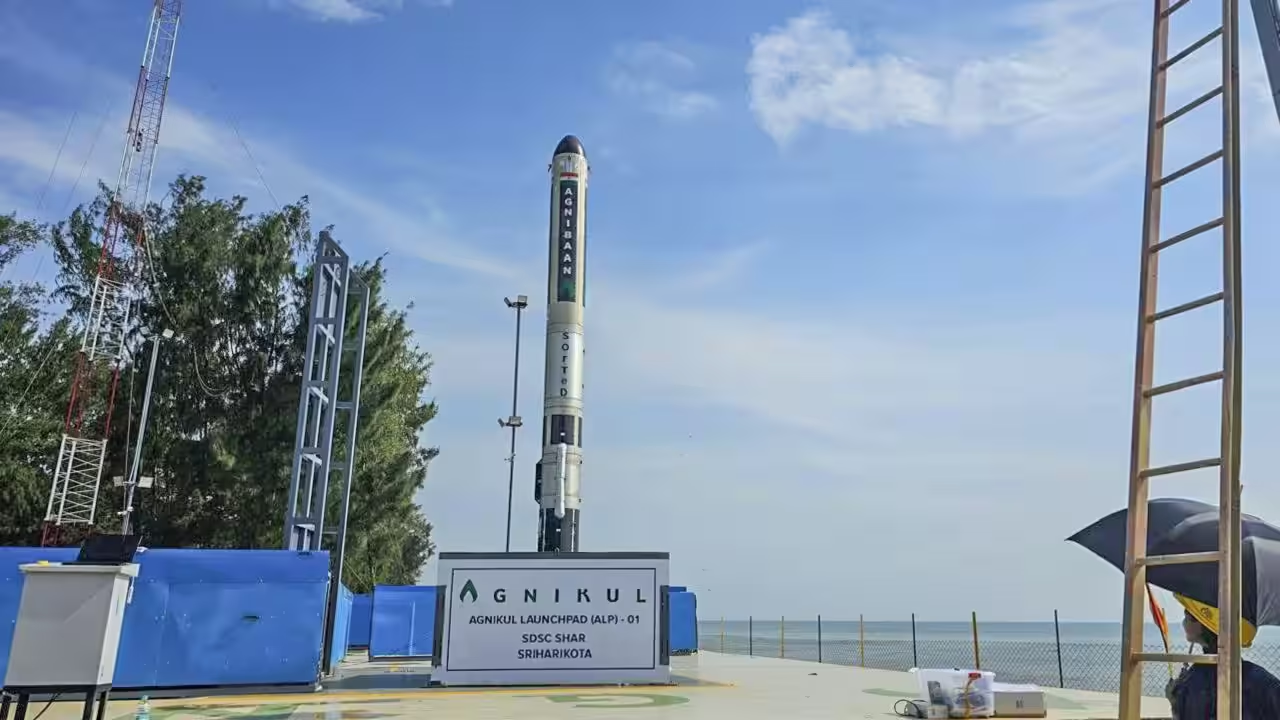Groundbreaking endeavour!

Two days after a technical glitch forced a postponement, Agnikul Cosmos has successfully launched its Agnibaan SubOrbital Technological Demonstrator (SOrTeD) mission, in its fifth attempt, marking several significant milestones for India's nascent private space industry. The launch from the Agnikul Launchpad, named Dhanush, at the Satish Dhawan Space Centre in Sriharikota, heralded India's first private launchpad, the first semi-cryogenic engine-powered rocket launch, and the first use of a single-piece 3D-printed engine for a controlled flight. The indications from the launch are quite clear and encouraging. It has stirred a hope that following the enviable growth in the clout of ISRO at the global level, lately, the private sector can also catch up in a complementary role. India’s growing emphasis on startups and innovation appears to be paying, and at what scale!
As iterated by the founders of Agnikul Cosmos, the SOrTeD mission aims to serve as a test flight, to demonstrate the in-house and home grown technologies, gather crucial flight data and ensure optimal functioning of systems for Agnibaan. The single-stage rocket is a precursor to the two-stage Agniban launch vehicle, which is designed to be highly customisable and capable of carrying a 300 kg payload to a 700 km orbit.
The achievement has garnered widespread acclaim from various quarters. ISRO, in a congratulatory message, highlighted the significance of the controlled flight of a semi-cryogenic liquid engine realised through additive manufacturing, a first for India and the world. The Indian Prime Minister, too, lauded the Agnikul team for their remarkable feat. Established in 2017 by aerospace engineers Srinath Ravichandran and Moin SPM, along with IIT-Madras faculty member Sathyanarayan R Chakravarthy, Agnikul Cosmos has steadily progressed, becoming the first Indian company to sign an agreement with ISRO in December 2020. The Agnikul team, consisting of over 200 engineers, is closely associated with the National Centre for Combustion Research and Development (NCCRD) at IIT Madras and benefits from the expertise of 45 former ISRO scientists.
Apart from the merit of Agnikul’s SOrTeD mission, which is already hailed by leading space experts of the country, an aspect that has captured the spotlight in public discourse is the combined potential of private and public sector in pushing the boundaries of India’s space ambitions. It may be recalled that the Government of India unleashed reforms in the space domain in 2020, opening the doors for enhanced participation of Non-Government Entities (NGEs) in carrying out end-to-end activities — through establishment and operation of space objects, ground-based assets and related services, such as communication, remote sensing, navigation, etc. —with an aim to provide them a level playing field. To streamline this collaboration, Indian National Space Promotion & Authorisation Centre (IN-SPACe) — an autonomous Government organisation — has been entrusted to promote, hand-hold, guide and authorise space activities in the country through its occasional guidelines. Additionally, through latest FDI regulations, India has permitted up to 100 per cent foreign direct investment (FDI) in space segments like satellite manufacturing and operation, satellite data products, and ground segment and user segment. FDI in other space activities has also been enhanced, subject to certain terms and conditions.
The spirit of collaboration has been reiterated by none other than ISRO Chairman, S Somanath, who said the success of SOrTeD mission “motivates ISRO to support the Space start-ups and non-governmental entities for innovation and Atmanirbharata to create a vibrant space ecosystem in the country.” As private startups like Agnikul Cosmos continue to innovate and push boundaries of the space sector, India may well be on its way to becoming a major player in the global space industry.



